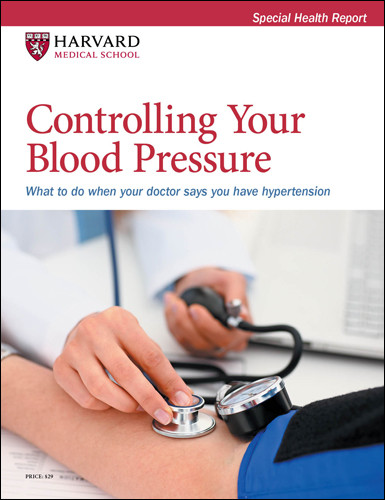Poor sleep linked to high blood pressure
Research we're watching
- Reviewed by Christopher P. Cannon, MD, Editor in Chief, Harvard Heart Letter; Editorial Advisory Board Member, Harvard Health Publishing

Sleep problems — including trouble falling asleep, staying asleep, and too little sleep — are associated with a greater risk of high blood pressure (hypertension) in women, according to a new study.
Published in the Nov. 2023 issue of Hypertension, the study tracked the health of 66,122 women for 16 years. When the study began in 2001, the women ranged in age from 25 to 42 and didn't have hypertension.
After researchers accounted for various demographic and lifestyle factors, they found that compared to women who slept seven to eight hours daily, those who slept six or five hours were 7% and 10%, respectively, more likely to develop hypertension. Women who said they sometimes or usually had trouble falling or staying asleep were 14% and 28% more likely to have hypertension, respectively, compared to those who rarely had trouble sleeping.
The findings don't prove that sleep problems cause elevated blood pressure. However, as the authors suggest, one possible explanation for the link may be increased stress, which is associated both with poor sleep and high blood pressure.
Image: © Tetra Images/Getty Images
About the Author

Julie Corliss, Executive Editor, Harvard Heart Letter
About the Reviewer

Christopher P. Cannon, MD, Editor in Chief, Harvard Heart Letter; Editorial Advisory Board Member, Harvard Health Publishing
Disclaimer:
As a service to our readers, Harvard Health Publishing provides access to our library of archived content. Please note the date of last review or update on all articles.
No content on this site, regardless of date, should ever be used as a substitute for direct medical advice from your doctor or other qualified clinician.
















